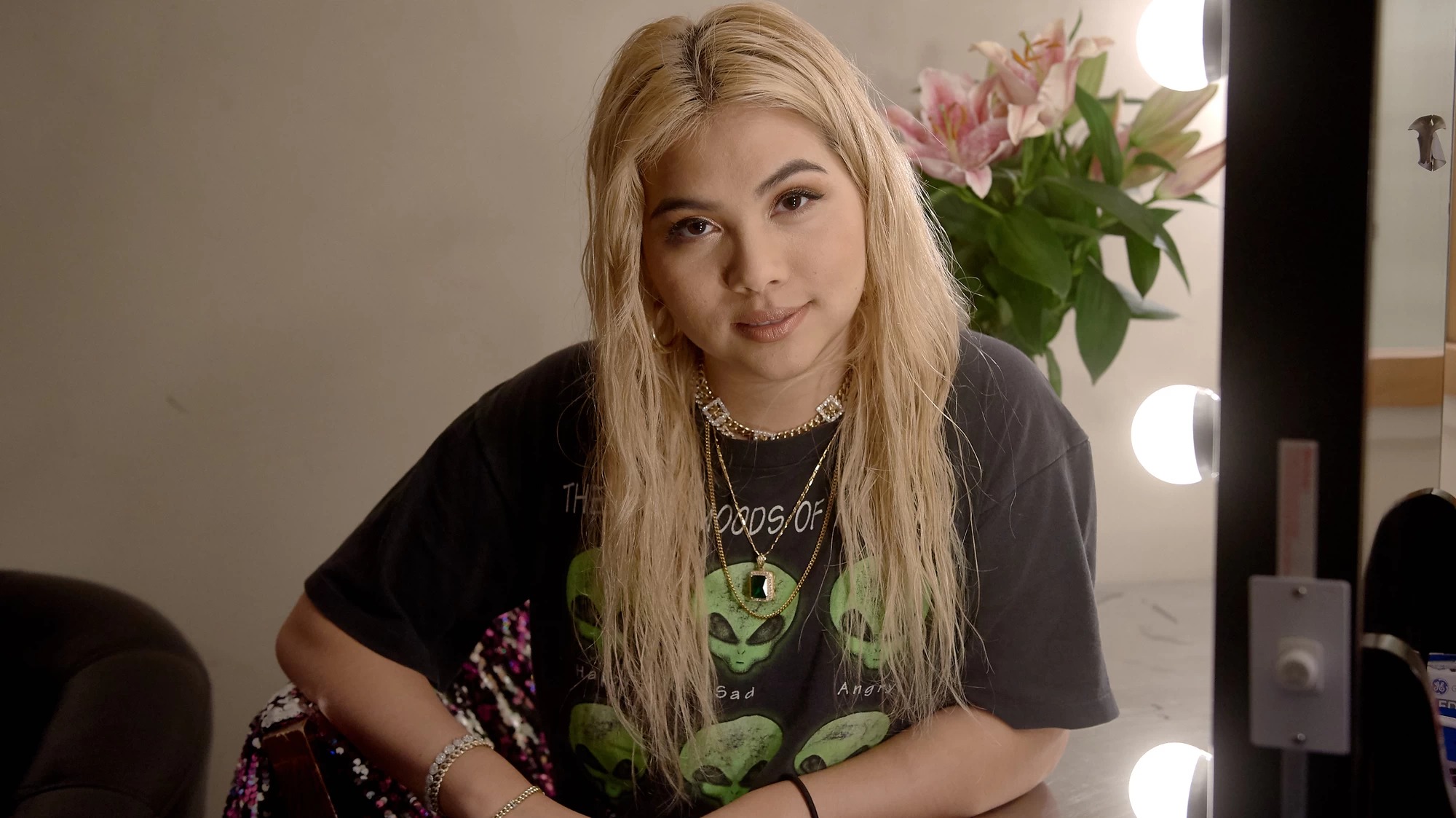This article originally appeared on i-D US.
The world of pop music has come a long way since Katy Perry dropped her catchy, but problematic 2008 anthem “I Kissed a Girl.” At the time, the song seemed like an undeniable bi-curious anthem — perhaps a step towards more inclusivity in pop, but Perry’s lyrics like “You’re my experimental game/Just human nature/It’s not what, good girls do/Not how they should behave” proved it wasn’t the revolutionary song we’d hoped for.
While queer imagery and lyrical content isn’t something new in music, there’s become a canonical shift in queer messaging over the past few years, moving from subtle allusions to open same-sex lyrics. Artists are singing about their own sexual experiences and preferences, and not in the same “offensive” way Perry did. They are unabashedly opening up with personal stories about being queer through visual and lyrical storytelling and helping create a new norm in the industry.
“To an extent it’s cyclical,” says Darryl Bullock, author of David Bowie Made Me Gay, of the shift in music. “Every time we see a push to the right politically — as we are seeing across the globe right now — it is preceded by a period of liberty, of advancement in civil rights, and of freedom of expression. Look at the European cabaret scene or the American Pansy Craze of the 20s and 30s that came immediately before the rise of Hitler and of fascism. Look at Stonewall in 1969 and the emergence of the queer political groups of the early 70s before we hit recession later that decade and had to deal with a toxic conservatism in both the UK and the US.”
Lady Gaga, who has been open about her bisexuality since her career beginnings, was instrumental in once again moving the needle forward for queerness in pop. With her 2011 hit “Born This Way,” she single-handedly promoted self-acceptance and inclusivity and celebrated the LGBTQ community. It’s since become a universal anthem embracing individuality and sexuality.
But 2012 marked perhaps an even bigger moment in the queer pop community. With the release of his debut album Channel Orange, Frank Ocean ignited an important conversation around same-sex relationships in music. Fans picked up on his new pronoun choice — “him” instead of “her,” which led to chatter regarding his sexuality. What resulted was a heartfelt note on Ocean’s Tumblr that went viral where he came out as bisexual. As a young, black, bisexual man in the public eye, sharing his journey was instrumental in opening up doors for artists in pop and R&B to tell reveal themselves and talk about love and sexuality beyond the binary.
With self-publishing platforms like Tumblr, YouTube and Instagram, artists don’t have to hide their sexuality to maintain their careers like they once did. In 2013, then budding YouTube star, actor and musician Troye Sivan came out in a viral video, just a year before releasing his debut EP TRXYE. The message set up a platform for what would be his successful music career. Sivan took control of the narrative he wanted around his music, which wasn’t necessarily possible with record labels holding the reins in the past; the internet has since changed all that. On his most recent album Bloom, he flaunts his sexuality on “My, My, My” and queer desire on its title track.
“For decades LGBTQ artists were told that if they came out, if they were honest with their audience that it would kill their careers. Now they are able to reach a global audience without having to compromise,” says Bullock.
LGBTQ visibility in pop music has also continued to thrive because of artists who have come out to an already devoted fanbase. Halsey, who identifies as bisexual, pens songs using interchangeable pronouns, uses same-sex couple visuals and even released bisexual anthem “Strangers” with out and proud musician Lauren Jauregui in 2017. Hayley Kiyoko was crowned “Lesbian Jesus” and dubbed last year #20GAYTEEN for writing songs that addressed the queer female experience. On “What I Need,” she even teamed up Kehlani, who identifies as bisexual, for a track about the struggle some couples have in embracing their sexuality fully. And then there’s Janelle Monáe who made bisexual pop banger “Make Me Feel,” which featured a sexually fluid utopia that was meant for the free-spirited and not the male gaze.
There have, of course, been missteps along the way. Demi Lovato’s track “Cool For The Summer” was both lauded and criticized for being a queer anthem. The line “Don’t tell your mother,” recalled the same criticism “I Kissed A Girl” once received, despite Lovato eventually revealing that she does in fact date men and women. On “Girls,” Rita Ora effectively came out as bisexual, but the messaging wasn’t taken well by artists and critics alike. Kiyoko penned an open letter about the dangerous context of the track, specifically, lyrics that cater to the male gaze and imply that women want to kiss women because they’re inebriated (“Sometimes I just wanna kiss girls, girls, girls/Red wine, I just wanna kiss girls, girls, girls.”)
Bullock believes that even if the intention of a song misses the mark, it’s the conversations that happen after that matter: “Having major artists in mainstream media feature LGBTQ subjects can help open up positive conversations around sexuality and gender. Perhaps hearing ‘I Kissed A Girl’ on the radio empowered a young queer or questioning woman to talk to her parents or her friends about her own developing sexuality.”
As more queer artists open up about their own experiences through music, they are creating much-needed representation in the industry. While there is still a long way to go, it’s exciting to see artists using their platforms to inspire their fans to be themselves.
